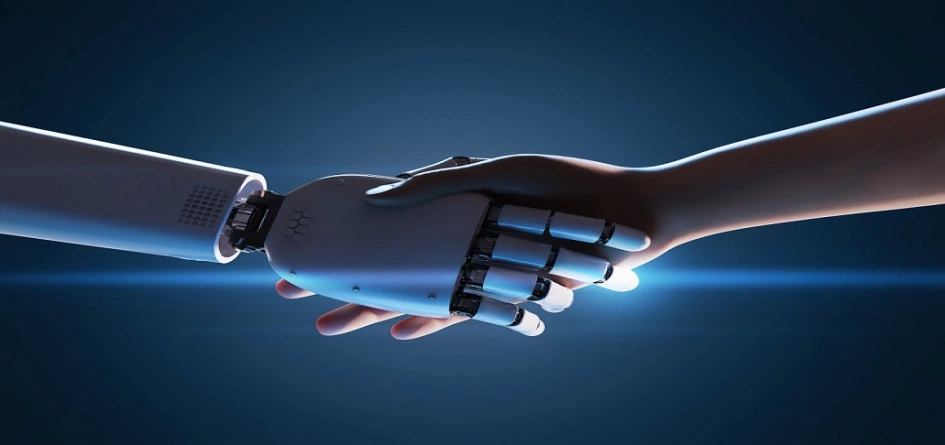

The human touch in marketing automation - sounds huh? Right. Yes! “Many companies have forgotten they actually sell people.
Humans care about the entire experience, not just the marketing or sales or service. To really win in the modern age, you must solve for humans,” says Dharmesh Shah, CTO & Co-Founder of HubSpot.
The above quote truly establishes the fact that only with the help of human intervention in an automated marketing set-up, a customer can experience satisfaction. The human touch in any aspect of marketing automation strategy assures customers that they are in trusted hands. This corroborates that a customer is a real human user, not a bot or program. A customer does not want to have an impersonal business deal.
So, let's scroll on to discover the amazing secret segments that ensure the human touch in marketing automation. But before proceeding further, let's take a glance at how AI for marketing automation is revolutionizing the way businesses approach sales and marketing compared to traditional methods.
A new survey of 15,000 consumers conducted internationally by Price Waterhouse Cooper (PwC) revealed that two-thirds of consumers feel organizations lack the human element in customer experience, and three-quarters of them demand more human interaction in the future, not less. This result arises from organizations failing to achieve their goals and meet customer requirements. This is where marketing automation CRM steps in. By revolutionizing workflows and business processes to streamline sales and marketing and ensure timely deliverables, HubSpot marketing automation has you covered.
While marketing automation technology can help you cut down on manual mundane chores and has numerous benefits, it also has a flipside to it. The moment customers realise they are interacting with chatbots or AI, their brand loyalty takes a blow. In such cases, customers at once opt for a customer care call to ensure that there is a human on the other side to hear them out.
Hold on! This is not yet enough. Many surprising numbers are yet to come.
A study conducted by the American Marketing Association showed that the application of Artificial Intelligence (AI) increased by 27% in the previous year and a half.
What's amazing is that AI hasn't just reduced our jargon but has also helped increase productivity within tight timelines. Additionally, at Inbound 2023, HubSpot also launched its new AI to enhance performance and leverage AI assistance facilities within the platform. Now come to the point.
AI for marketing automation has only been able to come close to human intelligence. Leveraging technology is efficient, but relationship and building trust with a customer can only be achieved with the help of someone who understands and experiences human emotions. It is only when companies touch an emotional chord with their customers that they will be remembered for their service. This attachment can never be accomplished by marketing automation despite its high significance in today’s world.
With AI being used increasingly, its ability to store and identify private information to be able to intrude into a user’s privacy is high. As more AI applications get comprehensive and integrated, there is a high probability of users worrying about their privacy and data security.
Human skills, also commonly known as soft skills are only privy to humans as the name suggests. As the remote work set up is catching up worldwide, businesses now desperately feel the need to up their communication strategies. While emails, phone calls and messaging can be mostly automated, they need to be personalised by humans, to begin with. This can help businesses connect with customers at various touchpoints of a business lifecycle. According to the Future of Work, Global Hiring Outlook, Monster, dependability, flexibility, problem-solving capacity and teamwork are skills that are majorly categorised under most-wanted human skills in organisations across the world.
AI for marketing automation or machines can never create anything new on their own. Creativity is a unique human characteristic, and machines require humans to come up with ideas to be keyed into them. Creative tasks like communication (written or verbal), sales, product development and more are areas where human intelligence is a prerequisite.
There is no doubt that marketing automation tools minimises errors and accelerates productivity in the field of accounting, but we still need our number experts to perform certain accounting tasks for us. A survey conducted a few years ago by the Institute of Management Accountants showed that though two-third of respondents said automation would help them in financial processes, only 32% of accounting processes were automated. These were accounts payable, receivable/billing, bank reconciliation, reporting, and journal entry creation. Here, automation and human expertise go hand in hand.
Why are surveys conducted? In the business industry, surveys are conducted to understand the human subject and accordingly implement and execute automation or human knowledge to enhance an experience. Surveys cannot be possible without ideation by humans while they can be significantly automated. Only a human brain can identify a human problem in a business area and work towards solving it. Automation only comes next to it.
In a Nutshell,
By any means, this does not mean that marketing automation platforms is less important. It is, however, vital to strike a balance between both by adopting a hybrid model where humans and automation can function in sync.
So, it's obvious that you were also looking for the right marketing automation expert who can help you leverage AI with a human touch, increasing the chances for agile growth and ROI. This is where TransFunnel steps in. At TransFunnel, we provide various marketing automation services while ensuring our professionals utilize their marketing automation expertise to advise you on what’s best for your business.
Discover the best AI-powered marketing automation B2B services for your business. Connect us!